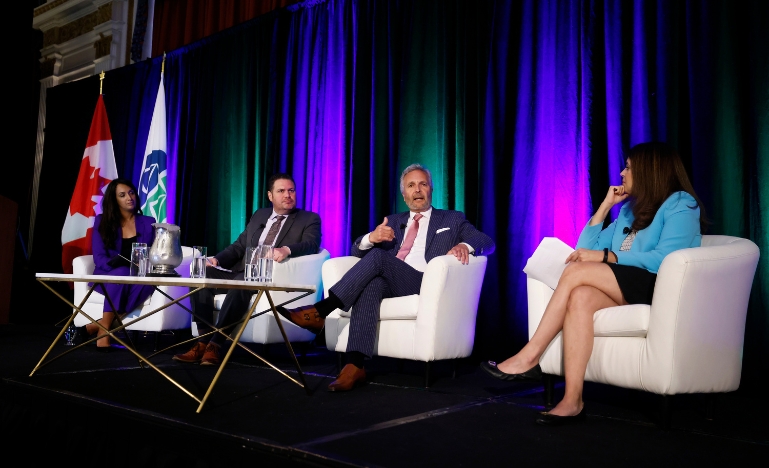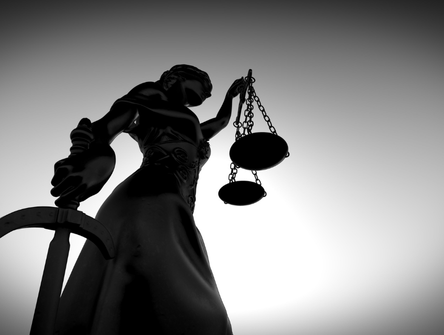Losing the justice beat
The underfunding of newsrooms and the courts has left coverage of legal issues more susceptible to misinformation.

Speaking at his end-of-session press conference earlier this month, Chief Justice of Canada Richard Wagner had a "eureka" moment.
"It happened right after I had explained how today, facing so many delays and backlogs, lower court judges are having to select what cases to hear based on how close they are to the Jordan ceiling," he told a CBA conference on judicial independence last week. When a journalist asked him if there was an analogy to make with how nurses triage patients in hospital emergency rooms, he answered "yes"– "and then I wondered why I hadn't thought of that logic before," he recalled. "The next day, unfortunately, that reporter lost her job."
It is an all-too-familiar story, underscored recently by massive layoffs at Bell Media, which also announced it was closing or selling nine radio stations. In Canada, over 2,000 media jobs have been eliminated this year, Wagner noted – adding to a year-over-year trend of cost-cutting plaguing traditional newsrooms worldwide and further reducing the capacity of journalists to cover the courts.
Even at the Supreme Court, the attendance of reporters during briefings is significantly down compared to what it used to be. According to Toronto Star columnist Althia Raj, a panellist at the CBA conference, the lack of resources has emptied the newsrooms of fact-checkers, and places an excessive burden on editors. "Since Twitter, basically, everybody is now a wire reporter," she said. "So, you're writing a first draft of your story, maybe, without really having spoken to anybody."
Journalists will sometimes tap an academic source for their report, but it isn't always feasible given time and resource constraints, particularly when covering lower court cases.
To members of Canada's judiciary, the state of traditional media is unsettling, to say the least. Even though the relationship between the two institutions can be uneasy at times, the courts still need the press, and they have much in common. Both are democratic institutions that thrive on providing information anchored in fact, said the conference's moderator, Jennifer Ditchburn, the president and CEO of the Institute for Research on Public Policy. And both act as checks on the government.
But judges typically try not to speak other than through their judgments. So the media plays a vital role as an intermediary between the legal system and the general public, informing and educating it about court proceedings and fundamental principles of justice, and offering valuable commentary on legal processes and court decisions.
Glenn Joyal, chief justice of the Court of King's Bench of Manitoba, acknowledged this symbiotic relationship between the press and the courts. "As a chief justice, there is a responsibility to make sure the media has what they need to do those functions," he told the conference.
Unfortunately, he added, "that's where most courts probably fall short. There's not a normalized way for journalists to get what they want, even when we're saying, 'No, you can't have that.'"
Understaffed courthouses can be a bewildering experience, especially for an inexperienced general assignment reporter trying to locate court files. Court documents are often unavailable digitally.
Media organizations also have concerns about the courts broadening the scope of exceptions to the presumption in favour of open and accessible court proceedings. The Canadian Media Lawyers Association's President, Patrick Bourbeau, emphasized the need to consistently apply the open court principle and preserve transparency in recent years.
"The fundamental principles exist. Unfortunately, they are not always applied in practice, and over the last few years, these principles seem to have been slowly eroded," he said.
A recent cause for alarm is the revelation of a secret trial in Quebec involving a police informant, the details of which were kept secret, including the name of the judge who heard the case and those of the lawyers involved. No docket number was even given. The Supreme Court of Canada granted leave in March to hear an appeal from a consortium of news media over the matter.
According to Chief Justice Joyal, however, the courts want transparency and that the media must understand that decisions to keep information shielded from the public "are made on the basis of reliable, predictable and understandable criteria, whether it's in a statute, whether it's in a common-law decision or a Supreme Court of Canada landmark decision."
The members of the media on the panel suggested that the judiciary bears some responsibility in helping journalists understand what those processes entail. Also, transparency has been a point of contention between the judiciary and the media, particularly in the wake of the investigation by the Canadian Judicial Council into a complaint made against former Supreme Court Justice Russell Brown that ultimately led to his recent resignation. The CJC has come under pressure to release its report that ordered a public inquiry into the allegations of misconduct.
When someone holds such significance in our system, the public should receive clearer explanations, said Raj, even if the answers are just about process. It helps to understand how a Supreme Court justice undergoes review, she added. "Walk the audience through, or the listener or the reader, the viewer through what the normal steps are so they can ask themselves whether or not they feel like people have been treated fairly. Too often in our system, we don't do enough of that."
There will always be occasional tensions between the judiciary and the media, but that doesn't mean they can't work together.
For her part, Raj advised legal professionals to step up by helping reporters, especially young ones with barely any exposure to the courts, by being accessible and sharing information. "And if there's something that's factually inaccurate in the story, you can also gently tell them."
Chief Justice Joyal echoed the same call to action to lawyers. "Help us inform the public by speaking to the media in ways that help us educate the public by helping the media understand the system better," he said. "Help us evaluate and hold ourselves to account by assisting the media and providing them the tools by which the system should be judged."


